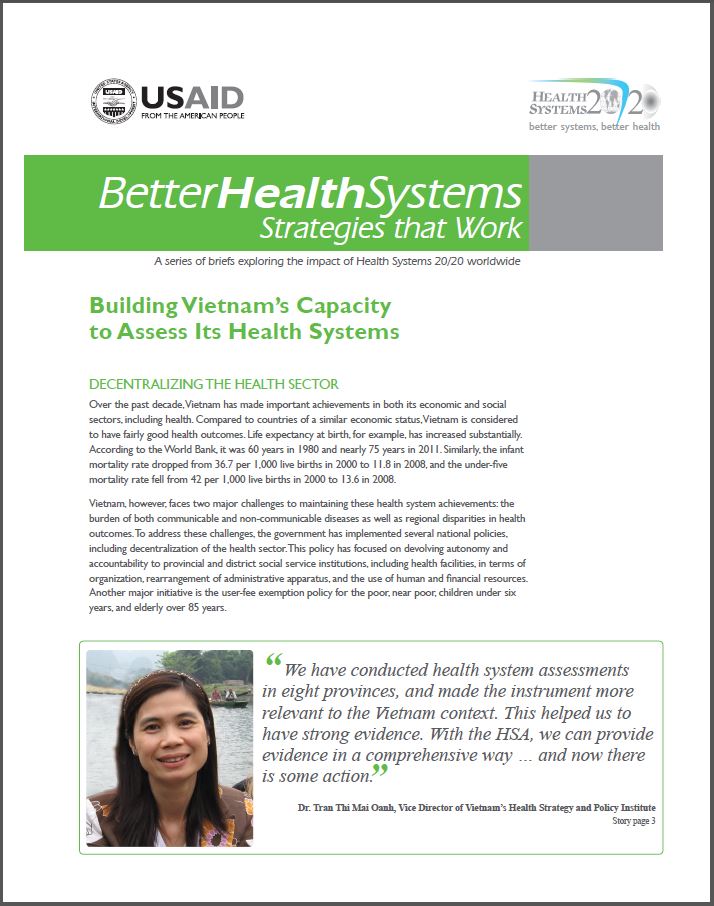Building Vietnam’s Capacity to Assess Its Health Systems
Categories: Capacity Building, Health Insurance (CBHI, SHI), Human Resources for Health, Publications
Resource Type: Brief
Authors: Amy Taye, Fred Rosensweig, and Megan Meline
Published: 1/1/2012
Resource Description:
 Over the past decade, Vietnam has made important achievements in both its economic and social sectors, including health. Compared to countries of a similar economic status, Vietnam is considered to have fairly good health outcomes. Life expectancy at birth, for example, has increased substantially.
Over the past decade, Vietnam has made important achievements in both its economic and social sectors, including health. Compared to countries of a similar economic status, Vietnam is considered to have fairly good health outcomes. Life expectancy at birth, for example, has increased substantially.
Vietnam, however, faces two major challenges to maintaining these health system achievements: the burden of both communicable and non-communicable diseases as well as regional disparities in health outcomes. To address these challenges, the government has implemented several national policies, including decentralization of the health sector. This policy has focused on devolving autonomy and accountability to provincial and district social service institutions, including health facilities, in terms of organization, rearrangement of administrative apparatus, and the use of human and financial resources. Another major initiative is the user-fee exemption policy for the poor, near poor, children under six years, and elderly over 85 years.
In 2008, Health Systems 20/20 partnered with the Health Strategy and Policy Institute (HSPI) to pilot a capacity-building approach for local ownership and institutionalization of USAID’s Health System Assessment (HSA). The success of health systems strengthening activities depends on the capacity of organizations to strengthen the health system itself.
Download Now



